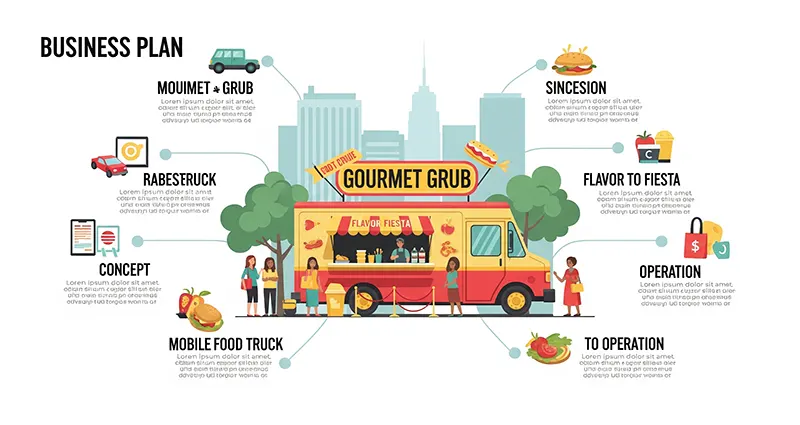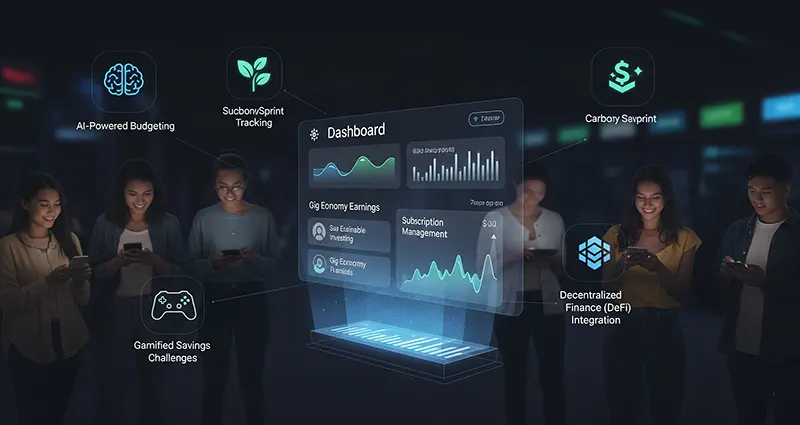From Wheels to Meals: A Business Plan Template for a Mobile Food Truck
Starting a food truck is a dream for many aspiring entrepreneurs—it offers the creative freedom of a restaurant without the immense overhead of a brick-and-mortar location. However, a passion for food is only part of the recipe for success. A well-structured business plan is the blueprint that will guide you from a great idea to a thriving mobile eatery. This template outlines the key components you need to research, plan, and present to potential investors or lenders.
[Your Food Truck Name] Business Plan
1. Executive Summary
- Business Concept: Briefly describe your food truck, your menu, and your unique selling proposition (USP). What kind of food will you serve? What sets you apart from the competition?
- Mission Statement: A short, powerful statement that defines your purpose and values.
- Financial Highlights: A snapshot of your key financial projections, including start-up costs, projected revenue for the first one to three years, and your
The New Money Mindset: Future Trends in Personal Finance Apps for Gen Z and Millennials
Personal finance apps have moved beyond simple budgeting tools to become a central component of how an entire generation manages its money. For Gen Z and millennials, these apps are not just about tracking expenses; they are a gateway to financial literacy, a community platform, and a personalized guide to a complex financial world. As a result, the next wave of personal finance apps is being shaped by the unique behaviors and priorities of these digital-native generations.
1. Gamification: Making Financial Goals Fun
Gen Z and millennials have grown up with video games and social media, and they expect their financial tools to be just as engaging. The future of personal finance apps will be heavily influenced by gamification—the integration of game-like elements to make a task more enjoyable and motivating.
- Points and Badges: Apps will reward users with points, badges, and virtual currency for achieving financial milestones, such as
Sizzling Your Way to Success: Marketing Strategies for a Small Catering Business
In the highly competitive world of food service, a small catering business faces a unique challenge. Unlike a traditional restaurant with a fixed location, a caterer doesn’t have a storefront to draw in walk-in traffic. Your reputation and your next client are built almost entirely on your ability to market your services effectively. With a smart, multi-pronged strategy, even a small operation can stand out, build a loyal clientele, and turn a passion for food into a profitable business.
1. Build an Irresistible Online Presence
In today’s digital-first world, your online presence is your storefront, portfolio, and sales team all rolled into one.
- A Professional Website is Your Home Base: Your website should be more than a digital brochure; it should be a powerful sales tool.
- Showcase Your Menu: Clearly display your menu offerings, pricing, and package options. Use stunning, professional photographs to make your food the star.
- Highlight Your
A New Guardian in the Digital Age: Using AI and Machine Learning for Real-Time Fraud Detection in FinTech
The rapid ascent of the FinTech industry—with its emphasis on speed, convenience, and accessibility—has brought about a parallel rise in the sophistication and volume of financial fraud. Traditional rule-based fraud detection systems, which rely on a set of static, predefined rules, are increasingly unable to keep pace with the dynamic and evolving tactics of fraudsters. In this high-stakes environment, artificial intelligence (AI) and machine learning (ML) have emerged as the new front-line defense, revolutionizing the way FinTech companies and financial institutions protect themselves and their customers.
The Limitations of Traditional Systems
Traditional fraud detection typically operates on a simple principle: if a transaction meets a set of pre-programmed rules (e.g., “flag any transaction over $5,000” or “block any transaction originating from an unusual country”), it is flagged for review. While this approach can be effective for simple, well-known fraud patterns, it has significant drawbacks:
- High False Positives: Rigid rules often
Important Factors To Look For When Choosing Web Hosting For Newbies
Web hosting and domain hosting in NZ are two pillars which hold a website together. Web hosting offers the needed space to hold website data, whereas a domain acts as an address that directs users to your website.
Simply put, both domain and NZ web hosting go hand in hand to ensure the accessibility and functionality of your website.
In this article, we will keep our focus on web hosting and important factors to look for when choosing web hosting for a newbie.
Important Factors to Look for When Choosing Web Hosting for Newbies
1. Hosting Needs
Understanding your hosting needs is the first important factor when choosing web hosting for startups. You need to understand what kind of website you need to create, which will determine your infrastructural needs accordingly.
For example, if you are building an eCommerce website, its web hosting needs will be more complex than those … READ MORE ...












